The confusing identification of the expert opinion in the colombian labor and social security process. judicial opinion or party opinion?
Keywords:
Prueba pericial, dictamen judicial, dictamen parte, documento declarativo emanado de terceros, documento dispositivo emanado de tercerosAbstract
The legal nature of the expert opinion may vary according to whether it is the judge who has been entrusted by the legislator with the function of deciding whether he needs the assistance of a third party for specific knowledge that he does not possess - Judicial opinion - in relation to the legal power given to the parties to provide their own opinion for evidentiary persuasion of the judge with respect to their arguments and manifestations - Opinion of a party -. It is indisputable that a judicial opinion must be foreseen for judicial proceedings of an inquisitorial nature, since in dispositive proceedings the presence of the opinion of the party is more justified, the latter, by virtue of the formal and material equality that, as a general rule, the parties may find in this type of proceedings. Thus, if the labor and social security process, due to its social structure, the legal measures must be found in the logical sense that allow workers, insured and pensioners of the social security system the full exercise of the service of access to the administration of justice, it is clear that in these judicial matters, the expert opinion must be handled both from the legal and jurisdictional point of view, as a judicial opinion and not as a party's opinion.
References
Bedoya DÃaz Hugo Alexander, Derecho Procesal Laboral y de la Seguridad Social, 1ª ed, Leyer. Bogotá: 2018
Bermúdez Muñoz MartÃn, Del dictamen judicial al dictamen de parte. Su regulación en el CPACA y en el CGP. Segunda edición. Bogotá, Legis: 2016
Bonett OrtÃz, S. A. (2018). EL RETO DE UN PROCESO DEL TRABAJO INFORMAL, RÃPIDO Y EFECTIVO. Bogotá: ICDP.
Botero Zuluaga Gerardo, GuÃa teórica y práctica de derecho procesal del trabajo y de la seguridad social. Sexta Edición, Ibañez: 2021
Caguasango V., D. A. (2012). El principio de oralidad en materia laboral. (1ª ed.). Bogotá: Ediciones Nueva JurÃdica
Consejo Superior de la Judicatura –Sala Administrativa-, Escuela Judicial Rodrigo Lara Bonilla. (2011), Dirección judicial del proceso en el régimen del trabajo y la seguridad social. Bogotá: SANABRIA O., H., SILVA R, M. y VARGAS O., R.
Diana MarÃa RamÃrez Carvajal en el trabajo Principios de la Justicia Civil, dirigido por Michele Taruffo y financia en Colombia por la Universidad Católica del Oriente
Fabian Vallejo Cabrera. La oralidad Laboral, Derecho Procesal del Trabajo y de la Seguridad Social, Décima Edición, LibrerÃa JurÃdica Sánchez R. SAS: 2020
Jaramillo V. Humberto. Derecho Procesal del Trabajo y de la Seguridad Social. 1ª Ed,Dike SAS: 2018
Moreno Pereira, Jorge. (2014), Aproximación crÃtica de la aplicación analógica del Código General del Proceso al Código Procesal del Trabajo y de la Seguridad Social. Bogotá: Universidad Externado de Colombia.
Marco Antonio Ãlvarez Gómez, Ensayos del Código General del Proceso, Volumen III, medios probatorios, Bogotá, Temis: 2017.
Marcel, S. (2020). TeorÃa General del Proceso- Una concepción social y democracia del derecho, Bogotá: . Legis.
Parra Quijano, Jairo. Manual de derecho probatorio. 13ª ed. Bogotá, Ediciones LibrerÃa el Profesional: 2002
Taruffo, Michele. (2008). La prueba. Madrid-Barcelona-Buenos Aires: Marcial Pons.
Corte Constitucional, Sentencia C-043, 25 de febrero de 2021, M.P: Cristina Pardo Schlesinger.
Corte Constitucional, Sentencia SU-049, 2 de febrero de 2017, M.P: MarÃa Victoria Calle Correa.
Corte Constitucional, Sentencia T-180, 8 de marzo de 2012, M.P: MarÃa Victoria Calle Correa.
Corte Constitucional, Sentencia C-424, 8 de junio de 2015, M.P: Mauricio González Cuervo.
Corte Constitucional, Sentencia T-198, 6 de junio de 2022, M.P: Cristina Pardo Schlesinger.
Corte Constitucional, Sentencia SU-129, 6 de mayo de 2021, M.P: Jorge Enrique Ibáñez Najar.
Corte Constitucional, Sentencia T-274, 11 de abril de 2012, M.P: Juan Carlos Henao Pérez
Corte Suprema de justicia, Sala Laboral Permanente.
Corte Suprema de Justicia, Sentencia SL986, 24 de febrero de 2021, M.P: Gerardo Botero Zuluaga.
Corte Suprema de Justicia, Sentencia SL859, 24 de febrero de 2021, M.P: Clara Cecilia Dueñas Quevedo.
Corte Suprema de Justicia, Auto AL2871, 21 de octubre de 2020, M.P: Fernando Castillo Cadena.
Corte Suprema de Justicia, Sentencia SL194, 23 de enero de 2019, M.P: Clara Cecilia Dueñas Quevedo.
Corte Suprema de Justicia, Sentencia SL1688, 8 de mayo de 2019, M.P: Clara Cecilia Dueñas Quevedo.
Corte Suprema de Justicia, Sentencia SL905, 4 de noviembre de 2013, M.P: Carlos Ernesto Molina Monsalve.
Corte Suprema de Justicia, Sentencia de tutela STL5848, 30 de abril de 2019, M.P: Gerardo Botero Zuluaga.
Corte Suprema de Justicia, Sentencia de tutela STL960, 4 de febrero de 2015, M.P: Gustavo Hernando López Algarra.
Corte Suprema justicia, Sala de descongestión.
Corte Suprema de Justicia, Sentencia SL2766, 12 de julio de 2022, M.P: Ana MarÃa Muñoz Segura.
Corte Suprema justicia, Sala Civil
Corte Suprema de Justicia, Sentencia SC11822, 3 de septiembre de 2015, M.P: Ariel Salazar RamÃrez
Corte Suprema de Justicia, auto AC3877, 31 de agosto de 2022, M.P: Luis Alonso Rico Puerta
Constitución PolÃtica de Colombia.
Código General del Proceso.
Código Procesal del Trabajo y de la Seguridad Social.
Decreto 1352 de 2013.
Ley 1562 de 2012.





